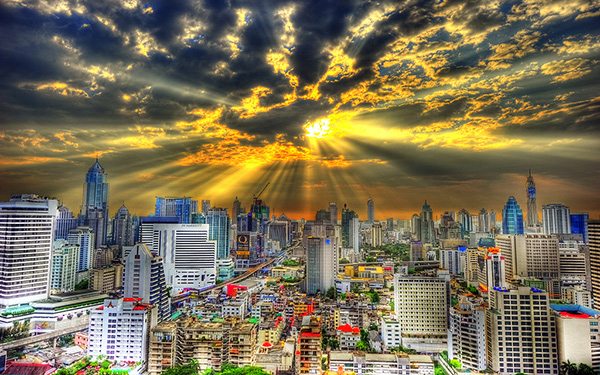Despite the challenges Thailand is facing in its economy, it looks as though Bangkok’s property market is standing apart and still proving to be a worthy investment.
A new report from DTZ has found that new condominium units in both the capital’s CBD (Central Business District) and non-CBD areas both enjoyed capital appreciation of over 17 percent year-on-year during the second half (H2) of 2015.
Average selling prices for new units in Bangkok’s CBD stand at ฿209,854 (US$5,786) per square metre, according to Dot Property, representing a 17.6 percent yearly jump.
In non-CBD Bangkok locations, new units sold for an average ฿105,258 (US$2,902) per square metre during H2 – a 17.7 percent yearly increase.
“Even in times of instability and economic difficulties, this latest data shows that investment in Bangkok condominiums will, in almost every situation, result in capital appreciation,” comments Adam Sutcliffe, managing director for Dot Property Group (Thailand).
“This is testament to the fact that the city still remains a very safe and secure investment,” he concluded.
While condominiums have traditionally been the investment of choice for Bangkok’s property moguls, low-rise projects are starting to peek their heads out above the parapet as the condo market faces a potential glut.
REIC report that many residential developers are turning their attentions towards single house and townhouse projects, with many developments set to be launched later this year.
The low-rise residential market is decidedly less volatile than the condo market as growth tends to represent real end-user demand rather than speculators and investors looking to make money off quick turnovers or the rental market.
Supalai Plc is one such developer; they are planning to launch a total of 29 low-rise projects worth over ฿35 billion (US$960 million) this year throughout Greater Bangkok and the provinces.
“All of our low-rise projects had good sales last year, with ฿1 billion (US$3 million) in presales each month,” explains Tritecha Tangmatitham, deputy managing director of Supalai, of this year’s direction.
“Condos were oversupplied and land costs were high in some locations.”
Fuelling the capital appreciation in Bangkok’s property market are factors like the expansion of the public transport networks, the increasing scarcity of prime land suitable for development and rising land acquisition prices.
Will you buy into Bangkok’s property market during 2016?
Featured image is by DeeMakMak and used under a Creative Commons licence


